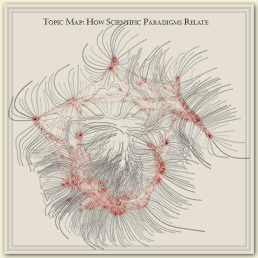Learning, Media and Technology Doctoral Conference
Wednesday, February 2nd, 2011Good News. I’ve had my abstract accepted for the Learning, Media and Technology Doctoral Conference at the London Knowledge Lab on the 4th of July. I’ll be submitting a paper (4000-6000 words) for the online conference proceedings at the end of May. Reviewed papers will be considered for publication in a special issue of the Learning, Media and Technology journal. In the meantime, here’s the abstract:
The proposed paper describes current doctoral research into how a small sample of social sciences, humanities and interdisciplinary PhD students are adopting and using social and participative media (web 2.0) in their academic practices. The study uses a qualitative, mixed-method design of observation of online activities, participant-reported accounts and successive in-depth interviews. An Activity Theory-based analytical framework of interrelated activity systems is used to describe shifting patterns of practice across multifarious academic contexts and through key phases in the doctoral experience.
The study adopts holistic perspectives of (i) doctoral practices, that legitimises academic activities beyond those related purely to thesis-development and established models of participation and enculturation, and (ii) of social media, responding to the multiplicity, interrelatedness and transiency of web 2.0 tools and platforms. In doing so, it recognises the self-efficacy and heterogeneity of PhD study in the negotiation of multiple socio-technical research communities and networks, and the complex role social media can play in identity-formation and induction into doctoral scholarship and academic professional development.
In addressing the significant gap between the potential of web 2.0 and the reality of low adoption rates and lack of widespread use, the paper proposes that dominant discourses and idealised concepts within the educational technology and media communities do not necessarily reflect the majority of doctoral students’ engagement with social media. Rather, key incentives, disincentives and barriers created by tensions with embedded research cultures within and without the faculty, and inconsistencies in training opportunities and shared practice, heavily influence and disrupt patterns of adoption and use.
The paper will also describe how the dissemination of the activity systems analysis is facilitating the ongoing participant interviews, enabling a negotiated understanding of participants’ use of web 2.0, and encouraging a shared, critical and reflective dialogue for the development of effective social media practices.



